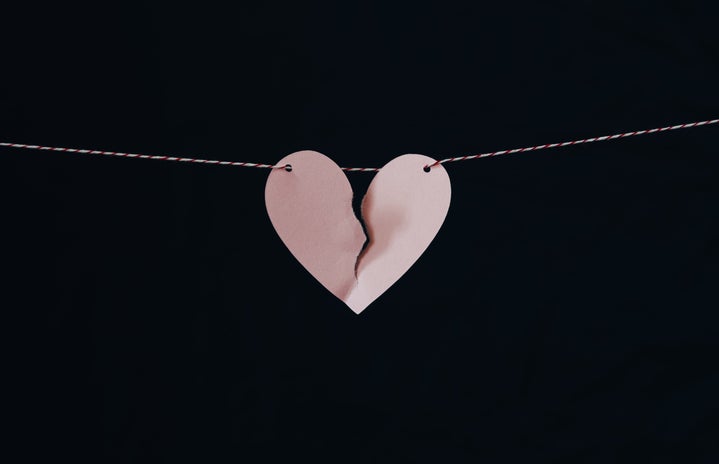We’re all taught from a young age the importance of friendship. Friends keep us company, open us to new experiences, support us when we need it, and overall, improve the quality of our lives. Studies have shown that healthy friendships can also hugely benefit one’s physical health.
Sometimes friends can make mistakes and hurt each other. Sometimes friendships need a break. Usually this is due to a mere misunderstanding and eventually can be patched up, but when is a friendship no longer worth fighting for?
Here are eight signs of an unhealthy friendship:
- Your friend makes empty promises.
-
Did your friend promise to meet up and flake on you last minute? Or worse, did they not bother telling you they weren’t going to show up? Stuff happens and it’s okay if a friend misses out on plans a couple of times. What’s important is that your friend communicates this beforehand and respects your time and effort. If your friend continually makes promises they can’t keep though, this could be a bad sign. Everyone forgets things occasionally, but if your friend doesn’t have good reasons as to why they keep breaking their promises, maybe they aren’t worth keeping.
- You don’t feel 100% comfortable when you’re with them.
-
This may seem like a no-brainer to some. Why befriend someone you don’t enjoy being around? But maybe you did genuinely enjoy hanging out with them once… until something changed. Does your friend bring out the worst in you? Perhaps you find yourself engaging in toxic behavior when you’re with them such as being overly passive aggressive or getting into fights. Or perhaps you don’t feel as though you can fully be your authentic self. Do you feel like you’re walking on eggshells, knowing one wrong move could set them off? This is no way to navigate a friendship. You should feel comfortable enough to be honest with your friend. You should take their feelings into consideration but if your friend can’t take the slightest bit of criticism and immediately goes on the offensive, that is a telltale sign.
- Your friend only makes apologies, never makes changes.
-
As you’ve probably heard time and time again, actions speak louder than words. When your friend messes up, it’s natural for them to apologize. Apologies are meaningless, however, if they don’t prompt new, discernable actions. If you don’t feel satisfied with a friend’s apology and all they do to comfort you is to remind you that they apologized, chances are the apology was never genuine and they only said it for themselves—not you.
- It’s always “just a joke.”
-
This may be a common excuse you hear after your friend said something that hurt your feelings. In some cases, it might’ve actually been a joke and your friend meant nothing serious by it. Nevertheless, if your feelings were hurt, it’s irrelevant to mention that it was “just a joke.” In doing so, your friend is denying your feelings and shifting the blame toward you because you couldn’t “take a joke.” A true friend would take the time and energy to learn what hurts you and why it does to ensure an instance like this doesn’t happen again.
-
You feel drained after talking to them.
-
If being around your friend feels like a chore and you consistently feel emotionally drained after seeing them, your friend might be an emotional vampire. They may also only reach out to you online when they need something from you and leave you on read otherwise. Conversations with your friend may be pretty one-sided because your friend wants all the attention. They may have a lot of (often superficial) drama going on and constantly need your reassurance and support. They often lack self-awareness and never realize nor appreciate the time and energy you offer them. Setting boundaries and being honest about how you feel is important in a situation like this. If there’s no room in the friendship for you to ask for help and support, you should let them go.
- You make excuses for them and are constantly giving them the benefit of the doubt.
-
When you find yourself justifying your friend’s toxic behavior and assuring yourself they’re a good person… they’re probably not. You shouldn’t settle for a terrible friendship because you believe deep down, your friend has the best intentions. If a friend means well, you won’t have to remind yourself that they do. Listen to your instincts and save yourself from more pain.
- There’s a clear inequality between giving and taking.
-
“Giving and taking” refers to the exchange of support you and your friend have in the friendship. This balance is sometimes hard to define. There are times when your friend needs more support from you and vice versa. If you feel as though you’re doing far more giving than receiving, try bringing it up gently to your friend. If your friend is dismissive toward your concerns, perhaps you should give them up.
- You feel a lot better after cutting things off.
-
After all is said and done, you may decide to end the friendship. If so, pay attention to how you feel afterward. If you are able to think a lot more clearly and feel more at peace, that’s a telling sign that you made the right decision. That doesn’t necessarily mean you won’t feel sad or upset. You probably still cherish the happy memories you shared together or the person you thought they once were. However, if you didn’t see any chance of salvaging an already broken friendship and your friend was unwilling to fight for it as much as you were, it’s time to move on. Take as much time as you need but move on. Move on by being kind to yourself and having some fun on your own. Catch up with some other friends who will help make you feel better. You can always reminisce about the time you had with your ex-friend while also making time for new and better people.


